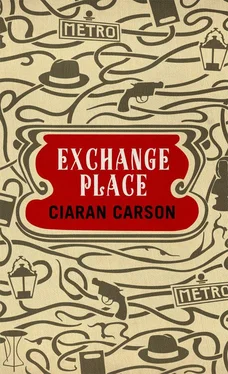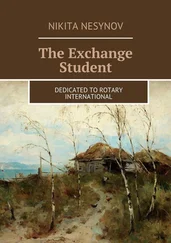In retrospect I am reminded of Sigmund Freud’s essay on the Uncanny, and his teasing out the meaning of the German word unheimlich , literally ‘unhomely’, but translated into English as ‘uncanny’; into Greek as xenos , ‘alien’; into French as sinistre ; and into Latin as suspectus , as in the expression locus suspectus , ‘an eerie place’. Heimlich is ‘homely’; yet, as Freud observes, there are contexts in which the word becomes increasingly ambivalent, moving from meaning homely, comfortable, tame, familiar, intimate, to secret, privy, inscrutable, hidden, locked away, removed from the eyes of strangers, until it finally merges with its antonym, unheimlich .
At the heart of Freud’s essay is an analysis of E.T.A. Hoffman’s story ‘The Sandman’, which revolves around the fear of blindness. Freud reads this as fear of castration. As a child, the protagonist Nathaniel is told in the evenings that he must get to bed because the sandman is coming, and on occasions he hears something clumping up the stairs with a slow, heavy tread. When he asks his mother about the sandman, she tells him of course there is no sandman, it’s only a figure of speech, a way of saying that you’re sleepy and can’t keep your eyes open, as if someone had thrown sand in them. But when he asks his sister’s old nurse, she has a different story. The sandman is a wicked old man who comes after children when they won’t go to bed and throws handfuls of sand in their eyes, so that their eyes jump out of their head all bloody, and then he throws them into his sack and flies off with them to the crescent moon as food for his little children, who have their nest up there and have beaks like owls and peck up the eyes of the naughty children. Nathaniel becomes increasingly obsessed with this figure, identifying it with a frequent visitor to the family home, the lawyer Coppelius, a loathsome fellow who might or might not be the doppelganger of an Italian optician called Coppola, or of a Professor Spalanzani, who has made a female automaton with which Nathaniel falls in love, neglecting his sweetheart Clara. At one point he is assured by her that his obsession with the sandman is just that: perhaps there does exist a dark power, she says, which fastens to us and leads us off on a dangerous and ruinous path which we would otherwise not have trodden; but if so, this power must have assumed within us the form of our self, indeed have become our self, for otherwise we would not listen to it, otherwise there would be no space within us in which it could perform its secret work. This power can assume other forms from the outer world; but they are only phantoms of our own ego.
I was interested to learn that Hoffman was a Jekyll and Hyde figure: by day a respectable lawyer in the Prussian civil service, by night a user of laudanum, debauchee, and author of bizarre tales and satires. In 1819 he was appointed to the Commission for the Investigation of Treasonable Organizations and Other Dangerous Activities. Within two years he had written a satire on the commission that employed him; it came to the attention of the authorities, but proceedings against him were halted when it was discovered he was dying from a combination of syphilis and years of alcohol and drug abuse. On his gravestone are carved the words, ‘Died on June 25th, 1822, in Berlin, Councillor of the Court of Justice, excellent in his office, as a poet, as a musician, as a painter. Dedicated by his friends.’ He was forty-seven. The formal cause of death was given as locomotor ataxia , inability to control the limbs, or paralysis.
I take my medication: a tablet each of clopidogrel, atoravastatin, bisoprolol, amlopodine, and perindopril, and it strikes me that I do not know what these words mean. For the first time I read the accompanying leaflets, and learn that among the possible side effects of these drugs are dizziness, constipation, diarrhoea, anorexia, muscle spasms, nausea, nightmares, insomnia, hearing loss, fever, liver failure, blistering of the genitals, impotence, loss of memory, hallucinations, paralysis, and blindness.
The room on the first floor of 57 Rue du Bac was crowded when Kilpatrick and Gordon arrived. They stood on the threshold of the double doors. There was a dull thud, then another, and the buzz of conversation died down. Peering over shoulders, Kilpatrick saw Freddy Gabriel standing at a microphone, dressed in a navy-blue flannel suit, white shirt and burgundy silk knitted tie. He had a white carnation in his buttonhole. Beside him, on the closed lid of a grand piano, was the black briefcase and a half-filled glass of champagne. Gabriel tapped the microphone. Another dull thud. Silence. Messieurs et Mesdames , began Freddy Gabriel, and he launched into a speech alternately in French and English. The English, Kilpatrick noted, was sometimes a more or less direct translation of the French, but sometimes not, more an addendum or sidetrack. It transpired that Patrick Modiano was indisposed that evening, having been overcome by a bout of gastric flu. Monsieur Modiano vous prie d’excuser son absence. Il est désolé. However, said Gabriel, in his absence Monsieur Modiano has very generously granted his permission for me to read an extract from his current work in progress, provisionally titled Rue Daguerre . But first some words about the author.
Jean Patrick Modiano was born on 30 July 1945 at Boulogne-Billancourt on the outskirts of Paris. I cannot say why he chose to be known as Patrick, or whether it was chosen for him. But for the writer Modiano, whose work is engaged with a search for identity and its embodiment in language, the names are not without significance. Jean, or John, is the author of the eponymous Gospel, which begins, In the beginning was the Word; John the Divine is the author of Revelation ; as for Patrick, the apostle of Ireland — and I am glad to welcome our Irish friends here tonight — many of the salient details of his life, such as his birthplace, are a matter of conjecture. By his own account he was born of Roman parents somewhere on the island of Britain, and taken as a slave into Ireland. He is an exile, and one could say that the protagonists of Modiano’s novel are in a state of internal exile, forever searching for a home. Or searching for an absent father; we note that the name Patrick has its roots in the Latin pater , father. Modiano’s own father is a mysterious figure …
Here Freddy Gabriel embarked on a digression on Albert Modiano, originally Alberto, but known as Aldo. The Modianos were a family of Sephardic Jews from Modena, who had emigrated to Trieste, Alexandria and Salonika before settling in Paris, where Modiano’s father was born in 1912. He discovered an early vocation for entrepreneurship — très jeune, il se livre à des affaires et trafics divers . Just before the Second World War he managed a shop selling stockings and perfumes. During the Occupation he evaded the 1940 Nazi census of Jews, living secretly under a series of assumed identities and involving himself in various ‘business deals’ — escroqueries . Among his associates was the writer Maurice Sachs …
Here Freddy Gabriel embarked on a digression on Maurice Sachs. Maurice Sachs was born in Paris in 1906 into a family of non-practising, anti-clerical and republican Jews. His father, Herbert Ettinghausen, abandoned the family when Maurice was six. His mother, Andrée, was the daughter of the jeweller George Sachs. At the age of seventeen he ran away from home and spent a year in London before returning to Paris to live by his wits — se débrouiller seul . He worked as secretary to Jean Cocteau for a period, and was employed by the couturier Coco Chanel to set up her library; in both cases the relationships ended in acrimony due to Sachs’s ‘indiscreet behaviour’. In 1925 he was converted to Catholicism by Jacques Maritain and was about to study for the priesthood when rumours of his homosexual liaisons led him to abandon that course of action. In 1930 further indiscretions led him to flee to the United States, where he had a brief success in making radio broadcasts for NBC. He converted to Protestantism in order to marry the daughter of the moderator of the Presbyterian church of the USA. Three years later he returned to Paris accompanied by a young American actor he had met in Hollywood. In 1940 he made broadcasts for Radio Mondial urging the United States to enter the war against Germany, and was placed on a Nazi blacklist. He then involved himself in the black market and other dealings, helping Jews to escape to the Unoccupied Zone in exchange for money, and becoming a Gestapo informer …
Читать дальше












